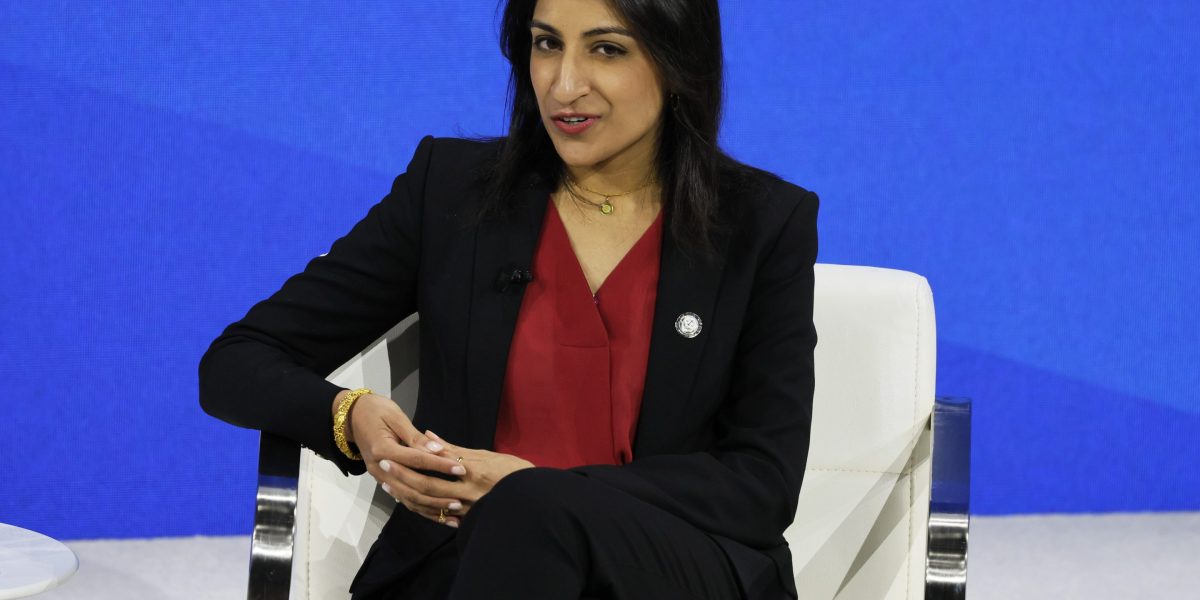
Federal Trade Commission Chair Lina Khan’s aggressive antitrust stance during the Biden administration has made her a lightning rod in Corporate America and among top Democratic Party donors.
Now with the presidential campaign in its final weeks, the election’s outcome and the potential impact on the economy are top of mind.
In a wide-ranging interview with the New York Times that was published on Saturday, Khan looked back on her tenure and was asked about what could happen if Kamala Harris wins the election.
Regarding the race for the White House, Khan was pressed on whether she worries her work might get cut short, given doubts about whether she might stay on in the next administration.
“I can’t predict what’s going to happen in November, or after that,” she replied.
Then she was asked if she has gotten any indication that she would not be wanted in a Harris administration.
“No, I think to the contrary,” Khan said. “We’ve seen the vice president note how she has been a prosecutor taking on illegal practices by corporations that were harming homeowners, that were harming patients, and that’s the work the FTC does as well.”
The Harris campaign didn’t immediately respond to a request for comment.
Some billionaire donors to the Harris campaign have reportedly urged her to dump Khan and SEC Chair Gary Gensler if she wins in November.
For its part, another Trump administration may also look unfavorably on mega-mergers, especially in the tech sector. Donald Trump’s running mate, Sen. JD Vance, has voiced support for Khan in the past.
“I don’t agree with Lina Khan on every issue, to be clear, but I think that she’s been very smart about trying to go after some of these big tech companies that monopolize what we’re allowed to say in our own country,” he said on CBS last month.
While Khan technically reached the end of her three-year term on Wednesday, she can keep serving in the role until a replacement takes over.
Earlier in the Q&A with the Times, she took stock of her record and said the FTC has “racked up a lot of wins,” including a court victory in a vertical merger case and a ruling in a consumer-privacy case against a data broker.
She also expressed skepticism about the argument that a larger company’s acquisition of a smaller company can bring more efficiencies to the market by pairing sufficient financial resources with new innovations.
Such efficiencies often don’t materialize, Khan said, adding that even when they do, companies don’t pass them on to consumers if there isn’t enough competition in the market.
That begged the question of whether the post-pandemic inflation surge was fueled in part by industry consolidation and anticompetitive practices.
“If you’re not enforcing antitrust, you’re allowing decades of consolidation that can create inflationary spikes more readily, because your system as a whole is less resilient to that disruption,” Khan said. “Second, a more concentrated market, when you have fewer players, is more easily going to be able to coordinate to hike prices or to keep prices high.”

